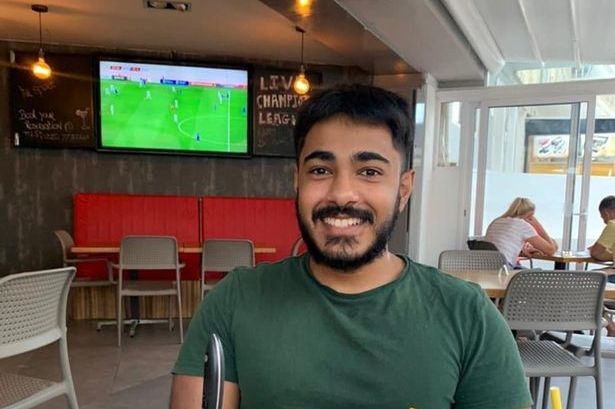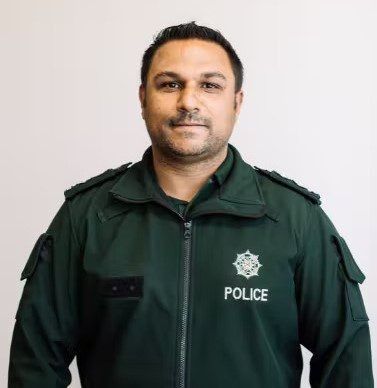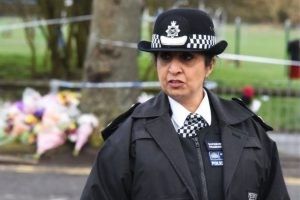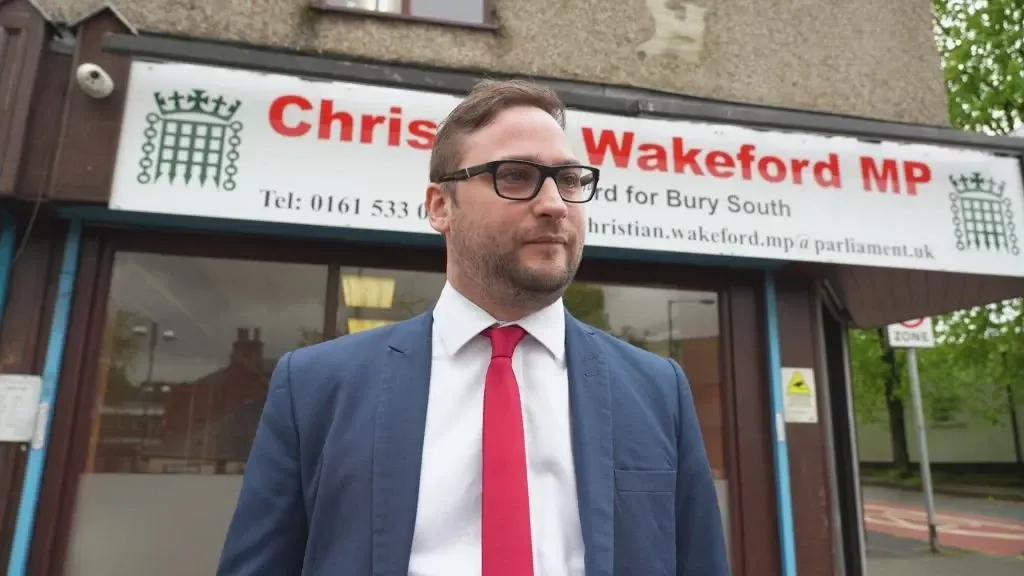- Sunday, April 28, 2024
Independent Office for Police Conduct to investigate death of Anugrah Abraham

By: SARWAR ALAM
A police reform campaigner has told Eastern Eye that the service’s regulatory bodies were not yet “fit for purpose” as the fall-out from the death of young police officer Anugrah Abraham continues.
Abraham, known as Anu, died by suicide on March 21 after he had been left suffering from “severe stress and anxiety” as a result of his experiences as a student officer at Halifax police station.
His family claimed the 21-year-old had been the victim of “persistent bullying, discrimination and institutional racism”.
The Independent Office for Police Conduct (IOPC) initially refused to investigate the case, before changing their mind as result of campaigning from Abraham’s family.
“We’re still not 100 per cent confident in them (IOPC) being fit for purpose,” Andy George, the head of the National Black Police Association (NPA), told Eastern Eye. “They are evolving, but they need to continue to change. They have definitely started to improve under (IOPC director general) Michael Lockwood.
“They are necessary at the moment to provide independent accountability, but there are a number of things which need to improve to ensure things are robustly followed up and that they are holding police into account during this critical time.”
George revealed he had personally seen instances in the past where the IOPC have been proved wrong in deciding not to independently investigate cases.
“In 2017, the Metropolitan Black Police Association did a whistle-blower complaint to the IOPC about the culture within the department of professional standards within the Met. The IOPC looked at it and found nothing. A couple of years later, Baroness Casey looked at the same data and found disparities in the system,” said George.
“It wasn’t a surprise the IOPC didn’t take it (Abraham’s case) on initially. We have been working with them around race discrimination lately. I’m trying to help them understand why it’s so important for them to investigate discrimination as well.”

Abraham’s uncle told Eastern Eye that it was “shocking” and “disgraceful” that
authorities had initially refused to conduct an independent investigation into the case.
“West Yorkshire have got an institutional culture riddled with racism,” said Shammit Saggar, who is the director of the Public Policy Institute at the University of Western Australia. “We’re complaining that is what has been the cause or the contributing factor in Anu’s death.”
Retired Detective Superintendent Shabnam Chaudhri spoke out after she was targeted with racist and misogynistic abuse during her time on the force because she was “Asian and female”.
She told Eastern Eye the police’s failure to listen to communities is what leads to tragedies such as that of Abraham.
“Time and time again, the police don’t listen to communities. This is a really important issue, not just for when it comes to the public, but also among police officers as well. The racism issues and suicide are not isolated incidents. This is certainly not unique to this young man. Police officers do take their lives,” said Chaudhri.
“When families come forward and they want answers, the IOPC need to listen and take on board what the families are saying to them.
“The family believe that his (Abraham’s) position as a police officer attributed to him take his own life. They’re entitled to want closure. They want to understand what has gone wrong and for police organisations to learn. The key here is to listen, take things on board and actually take action.”

Abraham was on a placement with West Yorkshire police as part of his three-year apprenticeship degree at Leeds Trinity University.
According to the family, Abraham was shouted at in front of colleagues on many occasions and he was sent out to deal with “difficult” cases on his own, including incidents of domestic abuse.
His family claimed Abraham was forced to carry out a full body search of a corpse found in a river despite vomiting after seeing the body.
They claimed Abraham also faced alleged racist abuse from the public while on the beat, including being addressed as ‘Abdul’ and was spat at.
“There was no awareness or support that there might be different issues that would be relevant to him due to his race,” said one family member.
On the morning of March 3, Abraham had breakfast with his parents and was due to return to work after a two-week holiday. Abraham’s father Amar recalled that “I would literally weep when I’d say goodbye to him as he set
off for a shift. He was in a dangerous and toxic environment and had no escape route.”
Abraham’s mother said the “stress and worry” of going back to work the next day was clear. He was reported missing that evening and was found dead 24 hours later.
Although Abraham informed his sergeant and university tutor that he had suicidal thoughts, his family claimed he received no “reasonable adjustments”.
His father said, “When he cried out for help, no one listened.”
The family have alleged “institutional factors within the police force contributing to his death”.
In a statement, they wrote that Abraham was “the victim of a lack of duty of care” by the police force, which “failed across the board to nurture and support a young trainee police officer”.
The IOPC initially “deemed it appropriate that a local investigation” be carried out by West Yorkshire Police – rather than an independent one by the IOPC.
Bury South MP Christian Wakeford raised Abraham’s case in the Commons and called for greater support for trainee officers. “They [the family] feel the harm and lack of support Anu experienced at the hands of the police killed him,” Wakeford told MPs. He also sought an independent investigation.

Home secretary Suella Braverman said, “I place on record my deepest condolences and sympathies to the family of Mr Abraham.” She said all who serve deserved “support” and “credit for their bravery” and indicated a minister or official would be willing to meet Wakeford and Abraham’s family.
Chaudhri said the IOPC had no choice but to investigate the case as a result of the family’s campaigning.
“It’s always interesting when somebody goes to the public domain, when they go to the media, to their local MPs – I advise many people to go to local MPs to get them to fight their corner. That’s when organisations will come forward and say, ‘okay, we will look at this’. When, actually, they should have investigated it immediately after the allegations had come out.”
Saggar said it was the right decision for the IOPC to investigate Abraham’s death as it “clearly” falls in line with their own criteria to investigate a case.
The IOPC’s core work indicators include public confidence; life-altering impact caused to a member of the public; vulnerability of a member of the public; serious corruption; seniority of officer and discrimination.
Referrals can also be considered under areas such as abuse of power for a sexual purpose; domestic abuse; mental health; road traffic incidents and discrimination (initially focused on race).
Saggar said, “The investigation West Yorkshire were going to do is exactly the same level of seriousness as an investigation into someone who complained
about a route traffic cop.
“If you complain about a road traffic cop who stops you and is rude, Yorkshire would investigate it themselves. And yet, we’re saying this was somehow an equivalent case. It’s ridiculous.
“The Casey review said the Met Police is end to end a disaster. She talked at length about policing culture and how police officers themselves are victims of these problems, not just the public. If all these things are true of the Met, and they don’t deny it, are we saying none of these things are to be found in West Yorkshire? The IOPC needs to wake up a bit.”
Saggar revealed Abraham broke down in tears when he tried to ask for support from his sergeant, but was put on a “management plan” in response.
“In other words, he’s saying it’s Anu who is failing,” said Saggar.
“The psychological and emotional pressure on him was getting worse and worse and he wasn’t getting any support.”
As Abraham lived in Bury, Greater Manchester Police took over his case. The family described their handling of the case as “appalling”.
When Abraham’s car was found near woodlands, police did not search the area because it was allegedly “dangerous”, with “wild animals” such as hedgehogs, the family said, and added that the police refused to send a helicopter to search for him.
They were also not allowed to see his body for three days, they said, as “it was the weekend, the mortuary was closed to the public”.
However, the mortuary staff apparently told the family they could have viewed the body over the weekend.
DCI Dave Jones, of Greater Manchester police’s professional standards branch, said: “This incident was referred to our branch and the IOPC for review who concluded that GMP had not caused or contributed to Anugrah’s death and the force had responded appropriately to the missing person’s report.”